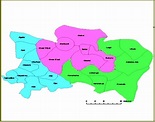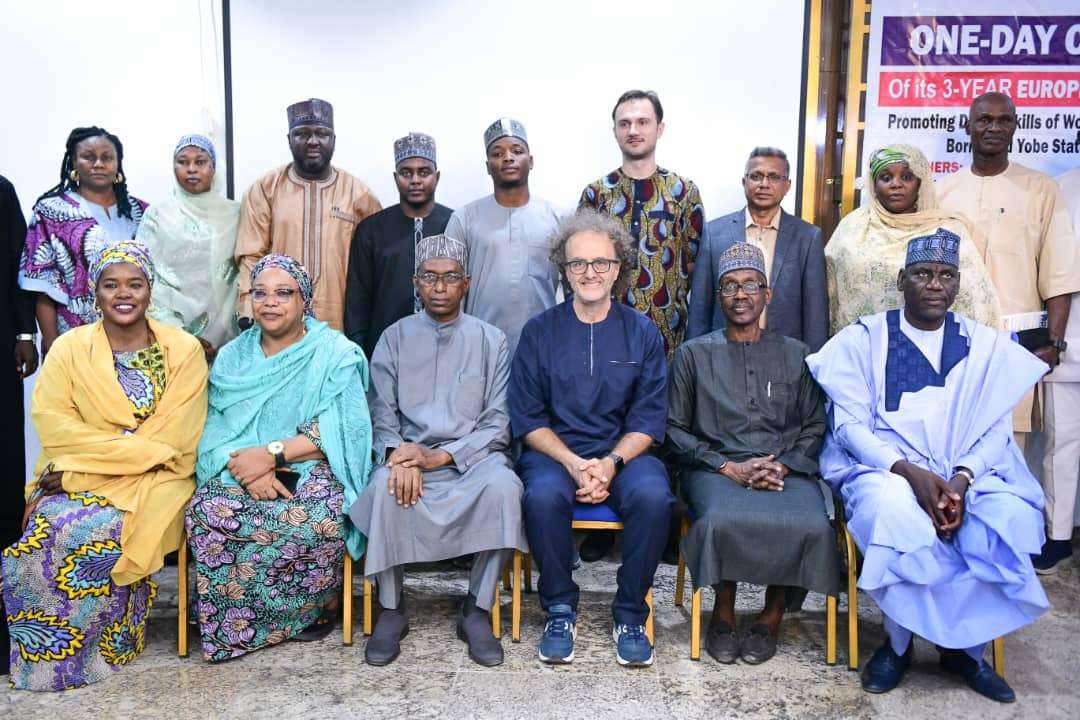The Digital Bridge Institute (DBI), and Miva Open University have signed a Memorandum of Understanding (MoU), aimed at advancing academic excellence in the fields of computer science and digital innovation.
Speaking at the signing ceremony of the agreement to mark the formalization and strengthening of the longstanding relationship between the two institutions on Tuesday in Abuja, President/CEO of DBI, David Daser, commended the dedication and resilience of the university management to raising academic standards.
He said: “Many MoUs are signed but not implemented. However, we are determined to ensure this one stands the test of time. We value this collaboration and believe it will contribute significantly to the development of Nigeria’s educational system.
Daser assured the delegation from the University of DBI’s full commitment to ensuring that the partnership achieves its purpose and objectives, adding, “now that the MoU has been signed, we are ready to hit the ground running. DBI is well-equipped and fully prepared to deliver.”
The DBI boss explained that all the institute’s campus in Enugu, Abuja, Kano, Lagos, Asaba and Yola have the DBI presence, which would be deployed effectively for the purpose of the partnership.
“In our new efforts to improve NID in DBI, all our campuses have DBI presence. We really appreciate the openness of your team and efforts, you are doing something inspiring. With this collaboration we are going to add value to our NID program as well as other DBI programs and your own programs as well. As I said, we want to go far and we will take this collaboration seriously.
Vice Chancellor of Miva Open University, and a professor, Tayo Arulogun who emphasized the importance of collaboration in Nigeria’s higher education sector, noted that one of the major challenges facing Nigerian universities was what he described as the “do-it-alone syndrome,” where institutions attempt to operate in isolation instead of exploring strategic partnerships.
“Many universities want to go it alone, rather than collaborating with established institutions like DBI,” he said. “But the resources available across Nigerian universities would actually be sufficient, if only we worked together.”
Arulogun therefore encouraged other universities and institutions to embrace collaboration as a means to optimize capacity and enhance academic output.
“You can be sure that once we signed this, we will hit the ground running and then we just move forward. We will start sending our students here, and we will look forward to have your Diploma graduates to come in. In the area of Hackathon, it is something we can work together because through that we can identify a lot of hidden talents, a lot of talented people are identifying through innovation like that. It is actually a plus for us at MIVA, so we thank you so much to allow us to start this.”
Head of Learning and Development Unit at the DBI, Emeka Nzeih, explained that the MOU would formalize a collaborative framework, between Miva and DBI that would facilitate enhancement of student education through real-world projects and internships; Joint efforts in research, innovation, and entrepreneurship; as well as Capacity building for students and staff through training and resource sharing.
The scope of the collaboration, according to him would include identification and facilitating innovative group projects addressing contemporary ICT challenges within Nigeria and beyond.
Nzeih pointed out that the projects would develop problem-solving and teamwork skills, integrating practical solutions into academic curricula, while the DBI will provide mentorship, and Miva ensures student participation and academic oversight.
According to him, both institutions would collaborate on cutting-edge research in areas such as artificial intelligence, robotics, cybersecurity, and other emerging ICT fields.
In the area of resource sharing, the DBI head of Learning Unit, also hinted that the DBI would provide access to its state-of-the-art ICT laboratories, equipment, and software for Miva students and faculty to support learning and research activities.








